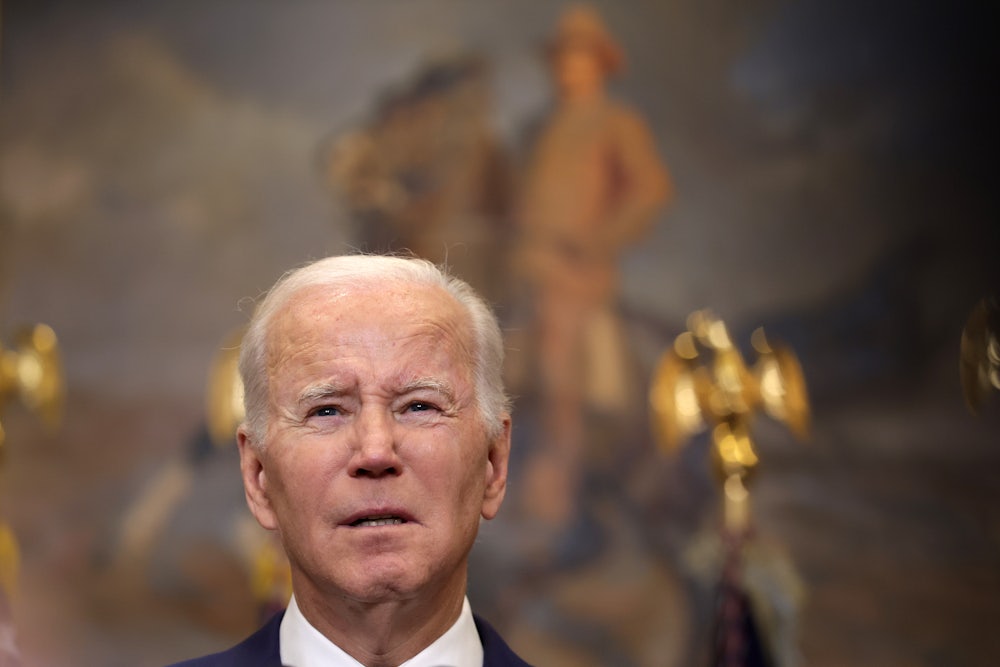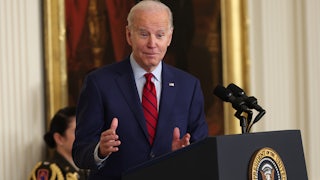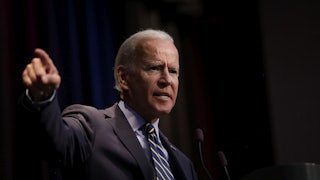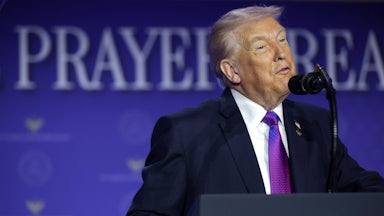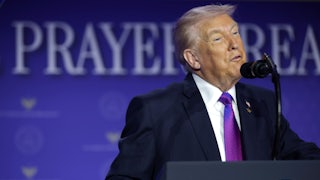Dwight Eisenhower was in Colorado on a “work and play” vacation, deep in his third year as president, when he nearly died. He began to feel ill on the afternoon of September 23, 1955, after a round of golf at the Cherry Hills Golf Club in Denver, but blamed it on the hamburger he’d had for lunch. When he awoke in the middle of the night with chest pain, his wife, Mamie, summoned his personal physician, who likewise suspected indigestion—a nearly disastrous misdiagnosis. It wasn’t until 10 hours later that Ike was sent to Fitzsimons Army Hospital, where he learned he had suffered a massive heart attack. He spent seven weeks convalescing there (waiting until he could leave the hospital without a wheelchair), then a few weeks more on his farm in Gettysburg, Pennsylvania.
Yet on February 29, 1956, Eisenhower announced he would run for reelection. The 65-year-old Republican had looked at the state of the world, and of his own party, and determined that he was the only person who could do the job. Having recovered from his heart attack, Ike was now stricken with Indispensable Man Syndrome. This malady afflicts everyone with a desk in the Oval Office, as every sitting president since the nineteenth century (including vice presidents elevated to the office) has sought at least one additional term as president.
Biden is expected to extend that streak, and the parallels with Eisenhower don’t end there. Health questions dog Biden as well: Though he has not (as far as we know) suffered a life-threatening health scare, he is more than 15 years older than Ike was when he was hospitalized. And Biden too worries about the state of affairs—authoritarianism on the rise at home, Russia on the warpath abroad—and quite likely feels that only he can guide America through these crises.
Only two modern presidents have ever grappled with the question of whether their health and age equipped them to serve another four-year term in the White House. The obvious parallel is 73-year-old Ronald Reagan—then our oldest president—who ran for reelection in 1984, three years after surviving a near-fatal assassination attempt. But Reagan never was reflective about his decision-making. As biographer Lou Cannon put it, “While Reagan was not dependent on the presidency for emotional self-definition, he was highly competitive and possessed a sense of mission. Once he reached the White House, he felt destined to be president again.”
Dwight Eisenhower, meanwhile, left behind a rich archival record of what it takes to make the decision that Biden is facing. So I spent a day reading through files at the Eisenhower Presidential Library in Abilene, Kansas. Even though the documents are nearly seven decades old, they offered revealing clues about Biden’s probable frame of mind as he confronts the age issue.
In a five-page White House diary entry on January 10, 1956, Eisenhower recounted a lengthy foreign policy discussion with Secretary of State John Foster Dulles. What began as a tour of Cold War global problems—with many criticisms of European allies Britain and France—ended with the bleak assessment, “It would appear that the world is on the verge of an abyss.”
Then the tone of the diary entry abruptly changed as Eisenhower oddly spoke of himself in the disembodied third person. Describing himself as “an individual who so desperately wants to lay aside the cares of public office,” the president reluctantly concluded that the world situation prompts “the unhappy suggestion that he must try to carry on regardless of any other factor.”
Eisenhower goes on to contemplate—never mentioning his vice president, Richard Nixon—an America without him. He worried about the nation’s “standing in the world” if he and Dulles “are to be succeeded by individuals of less experience, lesser prestige and without the ties of acquaintanceships and even friendships … with many world leaders.” Grappling with the implications of someone else in the Oval Office, Eisenhower asked rhetorically, “What will happen?”
As an answer in the diary entry, Eisenhower noted approvingly Dulles’s final comment that it “would be calamitous to our public relations if I were to announce that under no circumstances would I run again.” Ike might as well have repeated the line attributed to King Louis XV, several decades before the French Revolution: “Après moi, le déluge.”
But Eisenhower, as president and World War II hero, had a powerful case for why he needed to stay on. The Cold War was at its height—and Ike regularly received briefings describing the devastating effects of an all-out nuclear war: “Members of the Federal Government were wiped out … casualties were enormous.”
Moreover, there was no obvious replacement candidate from the moderate, internationalist Eisenhower wing of the Republican Party, since former New York Governor Tom Dewey had already lost two campaigns for president and Henry Cabot Lodge had lost his Massachusetts Senate seat in 1952 to John Kennedy. Eisenhower had his doubts about the readiness and capabilities of the 43-year-old Nixon, and Senate Minority Leader William Knowland, a likely candidate, was considered too conservative and too potentially isolationist.
It is easy to imagine that Biden sees his singular status in roughly the same way as did Eisenhower. While Kamala Harris is no Nixon, she also lacks anything like universal acceptance in the Democratic Party as a replacement nominee. As a result, Biden undoubtedly regards himself as the only Democrat who can prevent a Trump comeback. Like Eisenhower, Biden boasts a worldwide network of personal relationships with foreign leaders. And with Ron DeSantis now adopting the craven Tucker Carlson not-our-fight line on Ukraine, Biden could easily conclude that he is the Indispensable Man to resist Russian aggression.
On January 13, 1956, three days after the Dulles diary entry, Eisenhower convened a dinner meeting at that White House of 15 close advisers—including Cabinet members but not Nixon—to argue the merits of running for a second term. The only notable dissenter was the president’s younger brother, Milton Eisenhower, then the president of Penn State University.
Milton Eisenhower’s argument at that dinner might give Biden pause: “It would be calamitous if you had a setback during the campaign, and difficult for the nation if it occurred any time in your second term.” In an oral history interview conducted after his brother’s presidency, Milton Eisenhower noted that Mamie Eisenhower, in his vague recollection, was also “not favorable” to a second term because of concerns about her husband’s health.
Despite Eisenhower’s near certainty about his second term decision, the secret held until his regularly scheduled February 29 press conference. In a post–White House reminiscence, Eisenhower aide Robert Merriam, the associate director of the Bureau of the Budget, painted a portrait of the event: “Nobody was quite certain what the president was going to say, although thousands of words had been written in speculation.”
Eisenhower could not resist playing the moment to the hilt. Speaking to several hundred reporters crammed into the Indian Treaty Room, the president began his opening statement by talking about the annual fundraising drive of the Red Cross. Eisenhower went on to preview the upcoming visit of the Italian prime minister and the status of the farm bill in Congress. Only then did the president say that if the Republican convention renominated him, “My answer will be positive, that is, affirmative.” (He went on to rout Democratic nominee Adlai Stevenson for the second time.)
Merriam in his postpresidential assessment offered a shrewd summary of why Eisenhower sought a second term: “A feeling that no other Republican could win, the pull of friends and associates, and the conviction that only DDE could find the road to lasting peace.”
While lasting peace now seems a quixotic dream, the other factors equally apply to Biden. If Trump or DeSantis prevail on the Republican side, democracy will again be on the ballot in 2024. And Biden, with valid reasons, sees himself as the Indispensable Democrat fighting the contagion of right-wing authoritarianism.
